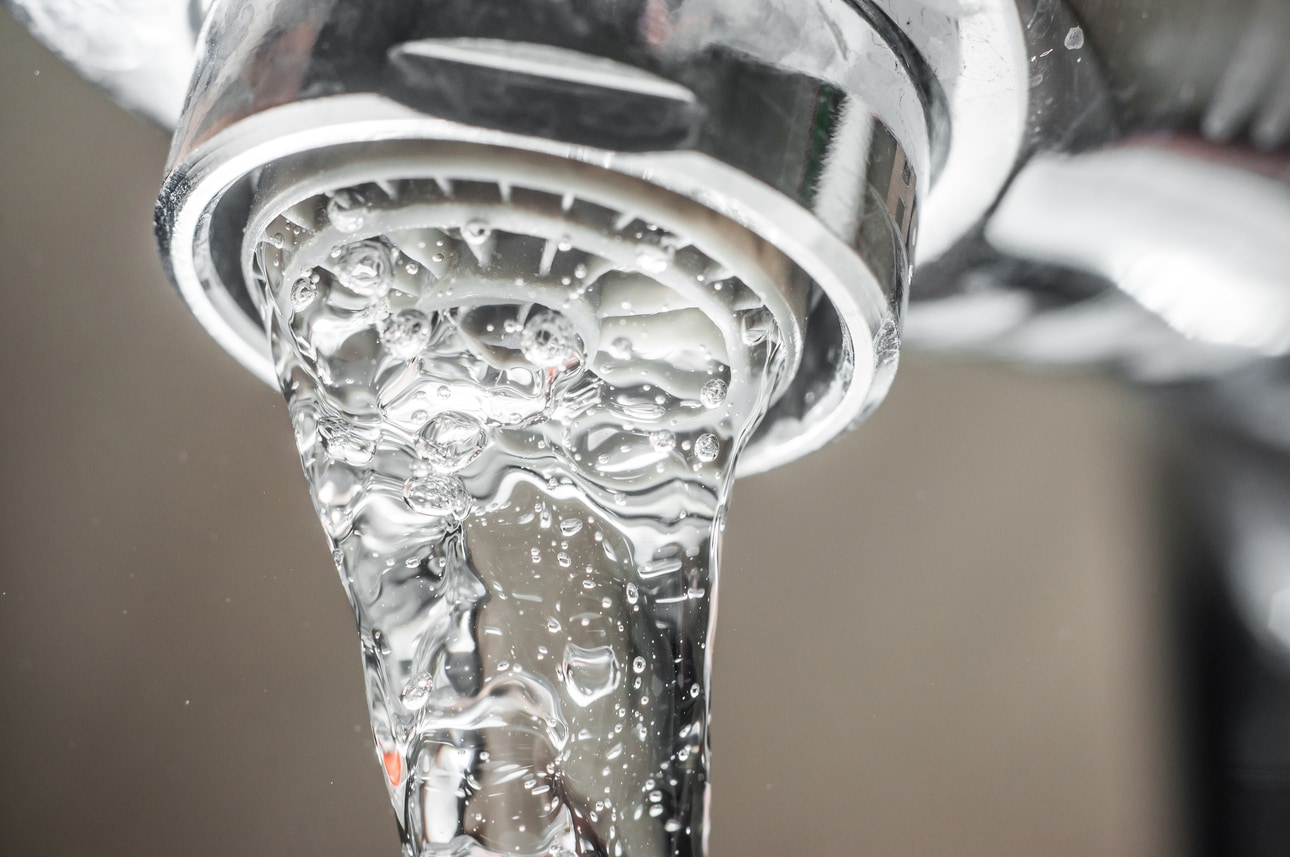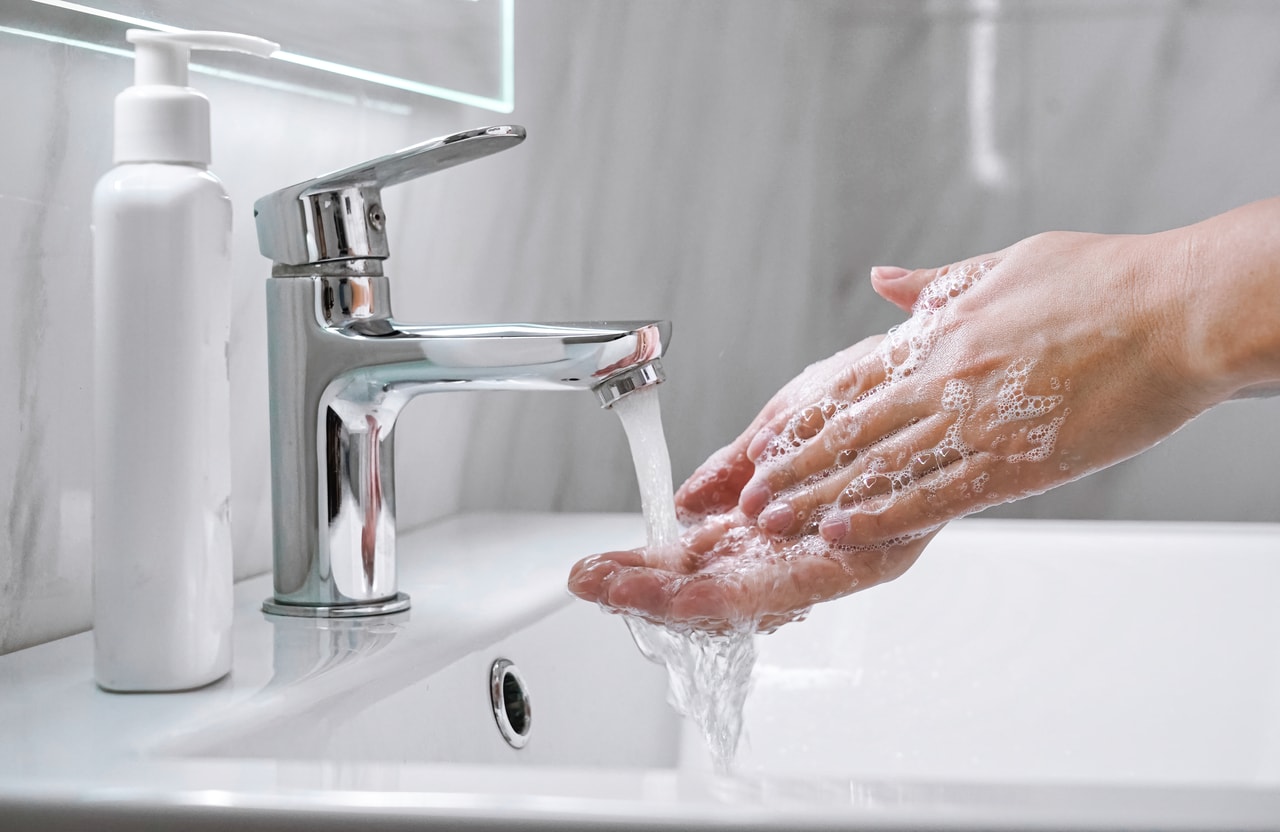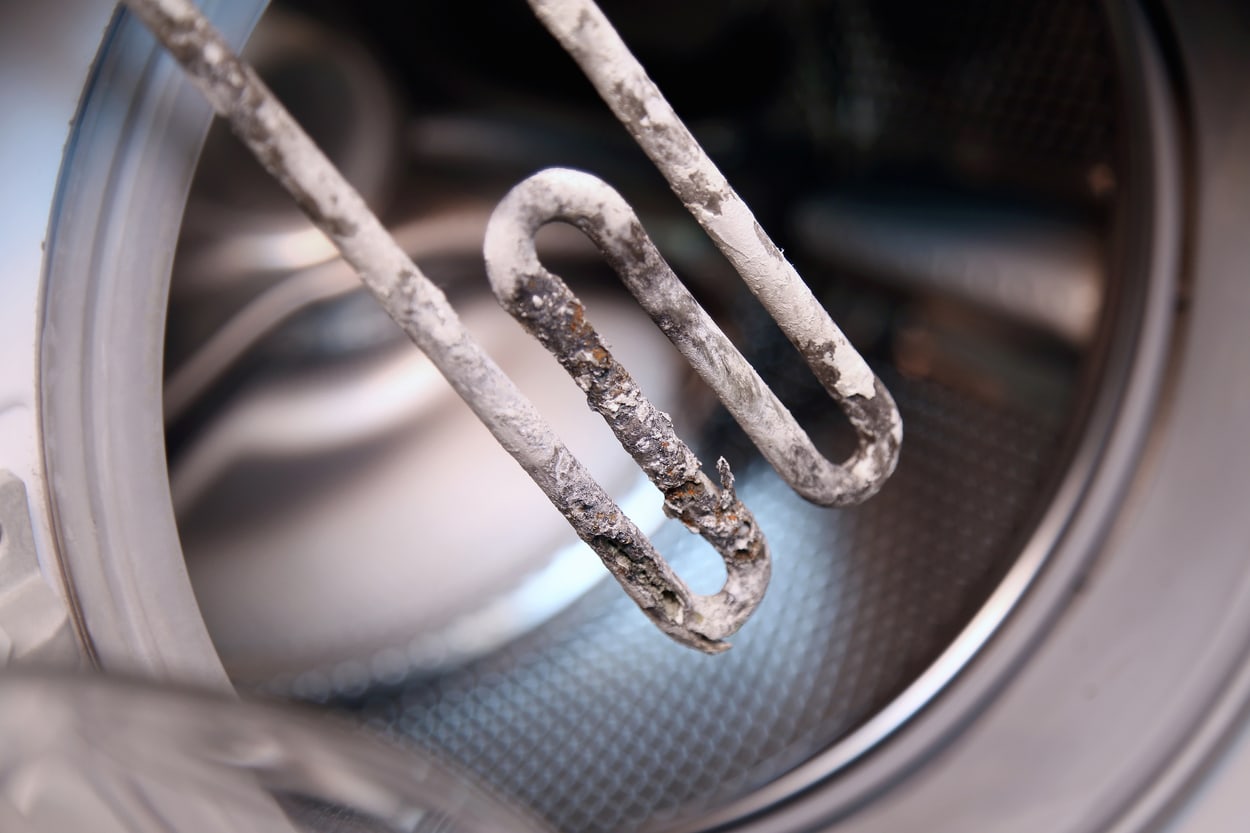Water Softener 101: What Is a Water Softener and How Does It Work?
Our water might look crystal clear, but typically contains minerals and chemicals that we can’t see with the naked eye. You may have heard of “soft water” before but, what determines if our water is soft or hard, and what difference does it make?
Hard water tends to age and break down appliances, leave soap scum across our kitchens and bathrooms, and dry out our hair and skin. A water softener serves a vital purpose, and can save you from having to replace prematurely ruined appliances or having to clean up residue from hard water again and again.
What is a Water Softener?
A water softener is a whole-house filtration system, removing hardness-causing minerals like magnesium and calcium from your water through an ion exchange. This system works by running hard water through a resin that is coated with positively charged (typically) sodium ions. These ions will replace the magnesium and calcium in your water. Water softening units require maintenance, and pellets will be needed to add and keep the resin electrically charged. Not all systems use sodium. Some systems use potassium pellets. Other systems can use magnets, citric acid, and other means to reduce the calcium and magnesium concentrations.
You can’t usually just look at water and tell it’s hard or soft, but there are some signs for each to tell if you have hard or soft water. Hard water usually will leave a film on your hands after washing them, calcium carbonate spots that show up on glasses and silverware, mineral stains in clothing, or manifest itself in the form of less water pressure in your home. Soft water helps achieve a decent lather when washing clothes, dishes, or your hands and body, clothes that are cleaner with no mineral stains, healthy water pressure in your home, and a clean, crisp taste to your drinking water.
Is Soft Water Safe to Drink?
Softened water is safe to drink. It’s mainly a matter of personal preference, and some choose to have a drinking water tap added when they have their filtration system installed. Though the softening process does use blocks or bags of salt, the salt is only used to soften the resin that acts on the water; only a minute portion of the sodium is transferred into the supply of water.
How Do Water Softeners Work?
Everything – all matter that exists – is made up of atoms. Atoms, or atom groups, carry negative or positive charges, and oppositely charged ions attract one another like magnets. The ion exchange process allows for multiple different ions to be removed, and replaced, with other kinds based on their natural charge.
When there are minerals present in water, some have positive charge, and there are varying strengths in each element’s pull. Calcium has a strong positive charge, while others have weaker charges. Water softeners take these positively charged elements, and remove the hard minerals like calcium and magnesium with negatively charged resin beads inside the media tank. Calcium and magnesium are the minerals that cause hard water and its negative side effects, and are the primary reason to install a water softener. All the hard minerals stay trapped inside the water softener tank, while the softened water, now containing a few sodium ions, is used throughout your house.
Your water softening system will clean and recharge itself to continue providing soft water for your home using regeneration. Water softener systems have two main components: the tank where the ion exchange happens, and a secondary salt storage tank. The secondary tank is where you’ll need to add water softener salt. Water is added to create a salt solution called brine, which is then taken into the softener tank where the ion exchange process happens again, in reverse.
Hard minerals are caught in the resin, released, and the media gets replenished with sodium ions. The water softener is cleaned and disinfected during regeneration. Water containing the hard minerals and other waste gets flushed out the system. Water softening continues to work with little attention other than adding salt, but it is advised to keep up with preventative maintenance by having your system checked regularly.
Types of Water Softeners
Water softeners are available in different types, but these being the most common:
- Ion exchange: The most common water softener in-home system. As mentioned before, it works by removing calcium and magnesium ions and replacing them with sodium ions.
- Salt-free: This system uses a mechanical filter to remove calcium, but is not as efficient with extremely hard water. Salt-free systems also do not remove magnesium.
- Reverse osmosis: These filter water through a semipermeable membrane that removes water impurities — usually more expensive, and uses a considerable amount of water. This system also is great at removing other chemical impurities.
Pros and Cons of Water Softeners
There are very few downsides to installing a water softener system in your home. From saving your pipes to reducing the amount of wasted water and excess cleaning, soft water presents several advantages:
Pros of Water Softening:
- Eliminates scale buildup on dishes, fixtures, appliances and may lengthen their lifespan
- Allows soaps and detergents to work more efficiently on clothes and dishes, reducing the amount of detergent needed
- More environmentally friendly due to less soap and water use
- Reduced spotting, scaling, and staining in sinks and bathtubs
- Energy saving due to less scaling
- Less dryness and damage to skin and hair
Potential Cons of Water Softening:
- Minor increase in sodium intake (1/16 daily value of sodium, or ¼ teaspoon per 2 liters)
- Removes mineral content from water (although it is not recommended to rely on hard water for dietary mineral intake)
- Ongoing maintenance and servicing
- Potential strain on septic systems from additional load of backwashing and regeneration
Choosing the Best Water Softening System for Your Home
The type of water softener that you need depends on what you intend to use it for, as most are used for areas where you use water the most like bathrooms, kitchens, and laundry rooms.
On Time Home Services located in Bakersfield, CA can help you decide what water softener fits your home needs at a reasonable price. We’re here to answer any questions you have about your water, plumbing, filtration, and more!
With 25 years of experience, you can enjoy peace of mind year-round knowing we’re here to keep you and your family comfortable and keep your water pure. Our expert staff are trained on the latest innovations in the plumbing and HVAC industry, so from maintenance to emergencies, we’re here to work hard in finding you the best solutions.
Contact us today if you’re in need of a Bakersfield water services expert you can trust. Our technicians have the knowledge, equipment, and resources to get the job done right, and on time.




